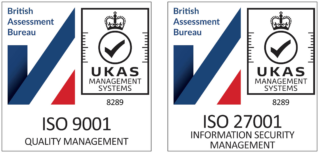Changing Employment Fraud Trends: stop the imposters before they harm your business

In February this year, the government tripled the civil penalties which can be issued to employers who knowingly employ workers without the Right to Work (RtW) in the UK. The fines have risen from £15,000 to £45,000 for a first offence, and from £20,000 to £60,000 for repeat offenders.
For SMEs, the financial risk of employing an illegal worker is considerable, not just in terms of the fines – which are now significant – but also for the damage to their reputation, potential loss of earnings, risk of fraud and lost opportunities due to having to rehire candidates. Robert Jenrick, Immigration Minister before the changes said: “We are announcing the biggest shake-up since 2014 on the penalties imposed on rogue employers and landlords who seek to circumvent our immigration rules by hiring or renting to illegal migrants”. This strong message has continued with visits by immigration enforcement stepped up, and employers collecting the increased fines.
Of course, not all employers who hire illegal migrants are ‘rogue’. Imposters and fraudsters are becoming ever more sophisticated in their methods to illegally make their way into the workforce.
Protect your business
It’s important for SMEs to focus on protecting their business from hiring illegal employees just as they would protect themselves from other fraud and theft from hackers and scammers. Introducing an illegal worker into your workplace can be devastating, and at TrustID, we constantly see a change in the fraudulent methods imposters are adopting to mirror the RtW legislation changes around qualifying documentation.
As a government-certified Identity Service Provider (IDSP), we are trusted by over 3.5 thousand businesses to support RtW checks for their employees and protect them from fraud. For over ten years, we have gathered trends in fraudulent documents and the lengths people will go to in order to gain work illegally.
As the legislation has changed over the years, so too fraudsters have changed their approach in presenting different types of documents to potential employers to meet the latest guidance. For example, we have seen a repeat offender who attempted to gain employment using a fake Spanish document in 2020 when this was an acceptable form of identity document. Then, when guidance was adjusted to require Biometric Residence Permits (BRPs) the following year, they presented a fake BRP, and once BRPs were no longer eligible for RtW in 2022, presented a fraudulently obtained share code.
An increase in imposter attacks
Presenting fake documentation isn’t the only method adopted by fraudsters. At TrustID, we are seeing an increasing number of individuals with genuine proof of RtW evidence, however it’s obtained and presented by an imposter. Between June 2023 and June 2024, our customers saw a 50% increase in imposter fraud, that is an applicant presenting either a genuine document or genuine share code which doesn’t belong to them. Whether evidence is being presented physically, remotely or via a digital RtW check through a certified IDSP, the documentation must match the person presenting it. An employer can verify this match either in-person or using a secure video link but it’s an essential step in the compliance process. For added peace of mind, identity validation services can analyse a selfie image captured by the candidate to match it against the individual in the document presented. This biometric face-matching and liveness checking technology adds an extra level of security. Employers must then conduct a final check themselves when the individual begins employment to confirm they are the individual in the RtW report.
Protecting your business must become a high priority
While the increase in civil penalties are primarily aimed at deterring ‘rogue’ employers, well-intentioned SMEs need to protect themselves against the same tricks and techniques used by imposters and fraudsters. Introducing a streamlined compliance process doesn’t have to be time-consuming or costly. In fact, using an IDSP like TrustID can reduce costs and speed up your compliance checks. We continually invest in developing and adapting out solutions to meet evolving fraud risks and compliance challenges and provide additional support in the form of our expert human document analysts who are there to double check any anomalies.
If you’d like to read more about our fraudulent document trends, you can do so here.
Sign up to receive updates
Receive notifications from TrustID direct to your inbox. Simply fill out your email address in the form below.
Want to find out more?
We’d be really happy to chat through your requirements and offer advice on the best service for your business.
Tel: 0118 466 0822 or email us.
Request a callback
